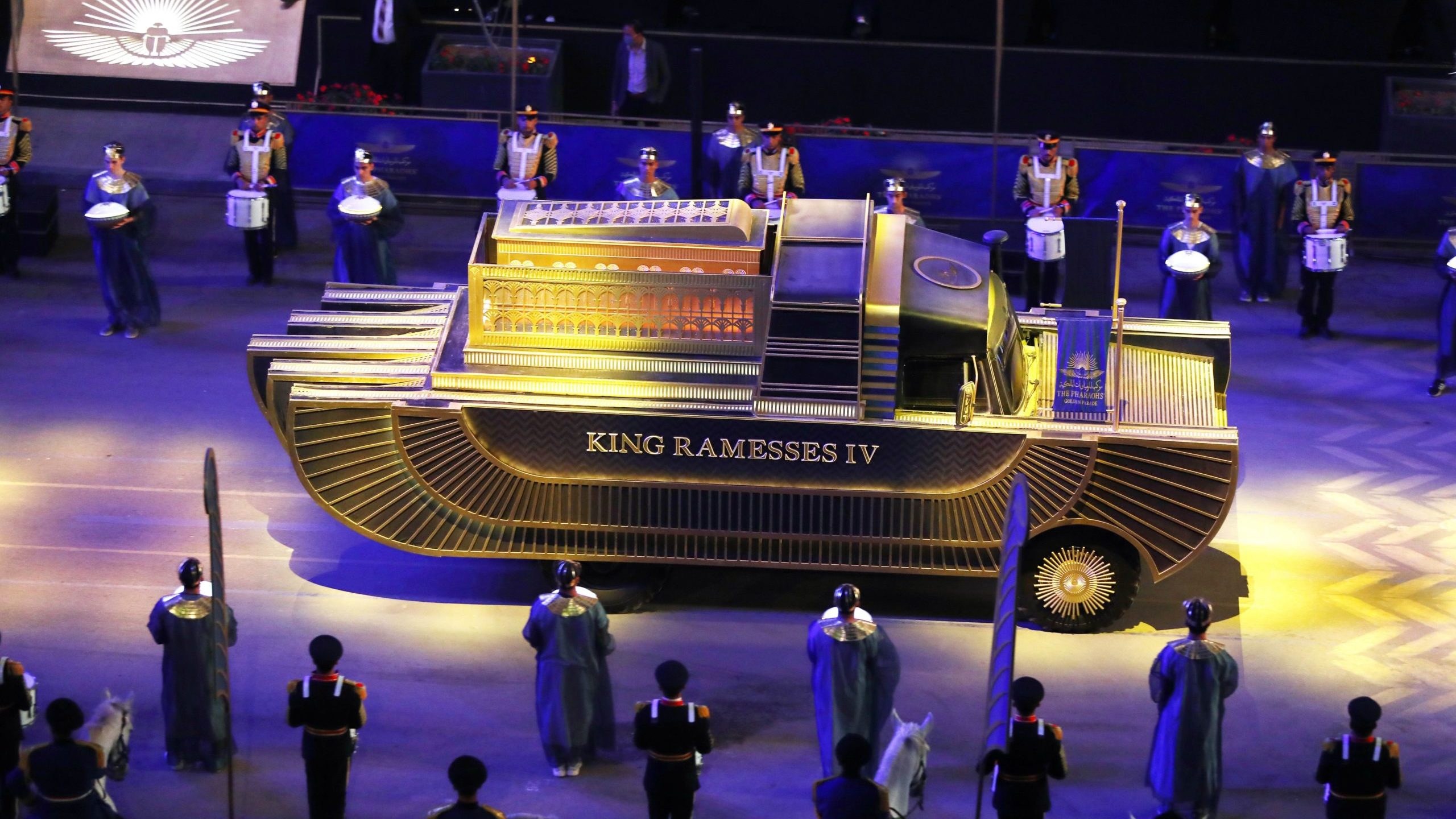The Curse of the Pharaohs
Al-Riyadh, Saudi Arabia, April 2
Last Saturday, 40 mummies and sarcophagi were transferred from the Egyptian Museum located in Tahrir Square to a brand new hall located in the National Museum of Egyptian Civilization. The mummies we moved in a glittering display in the heart of Cairo, in what was called “The Pharaohs’ Golden Parade.” The new museum, located just a few miles away, is working on a seven-year development plan that will ultimately qualify it to enter the World Heritage List as a member heritage site. The mummies and sarcophagi are an important milestone in achieving that designation. Upon arrival at the museum, the artifacts were placed inside special nitrogen capsules that will preserve and protect them. Ironically, some Egyptians and Arabs ignored the celebratory occasion and claimed that the moving of the artifacts will bring bad luck to Egypt – and could partially explain recent incidents and tragedies that have struck the nation. These people cite the so-called “curse of the pharaohs,” alleged to be cast upon anyone who disturbs the mummy of an ancient Egyptian. They evoke the story of the Titanic that sank in 1912, supposedly because it was carrying a pharaonic mummy owned by Lord Centerville. Another oft-cited story is that of the Caliph Al-Ma’mun, who entered the Great Pyramid of Giza in 832 and died a year later. The truth is that Al-Ma’mun’s likely died of natural causes due to the inhaling of ammonia and hydrogen sulfide – two highly toxic gasses – found inside the tombs. What is more likely is that the myths surrounding the so-called “curse of the pharaohs” was an attempt to intimidate thieves and keep them away from graves. Indeed, the phrase was invented by the ancient Egyptians themselves to protect their graves. In 1922, The New York Times newspaper ran a story on the curse, following the death of Lord Carnarvon, a notable British aristocrat and tomb explorer who discovered Tutankhamun’s tomb. The attempts to evoke this ancient myth of a curse only serves to undermine Egypt’s national achievement in establishing this world-class museum and to undermine the widespread reforms enacted by the Egyptian government today. –Badr bin Saud (translated by Asaf Zilberfarb)
This holiday season, give to:
Truth and understanding
The Media Line's intrepid correspondents are in Israel, Gaza, Lebanon, Syria and Pakistan providing first-person reporting.
They all said they cover it.
We see it.
We report with just one agenda: the truth.



